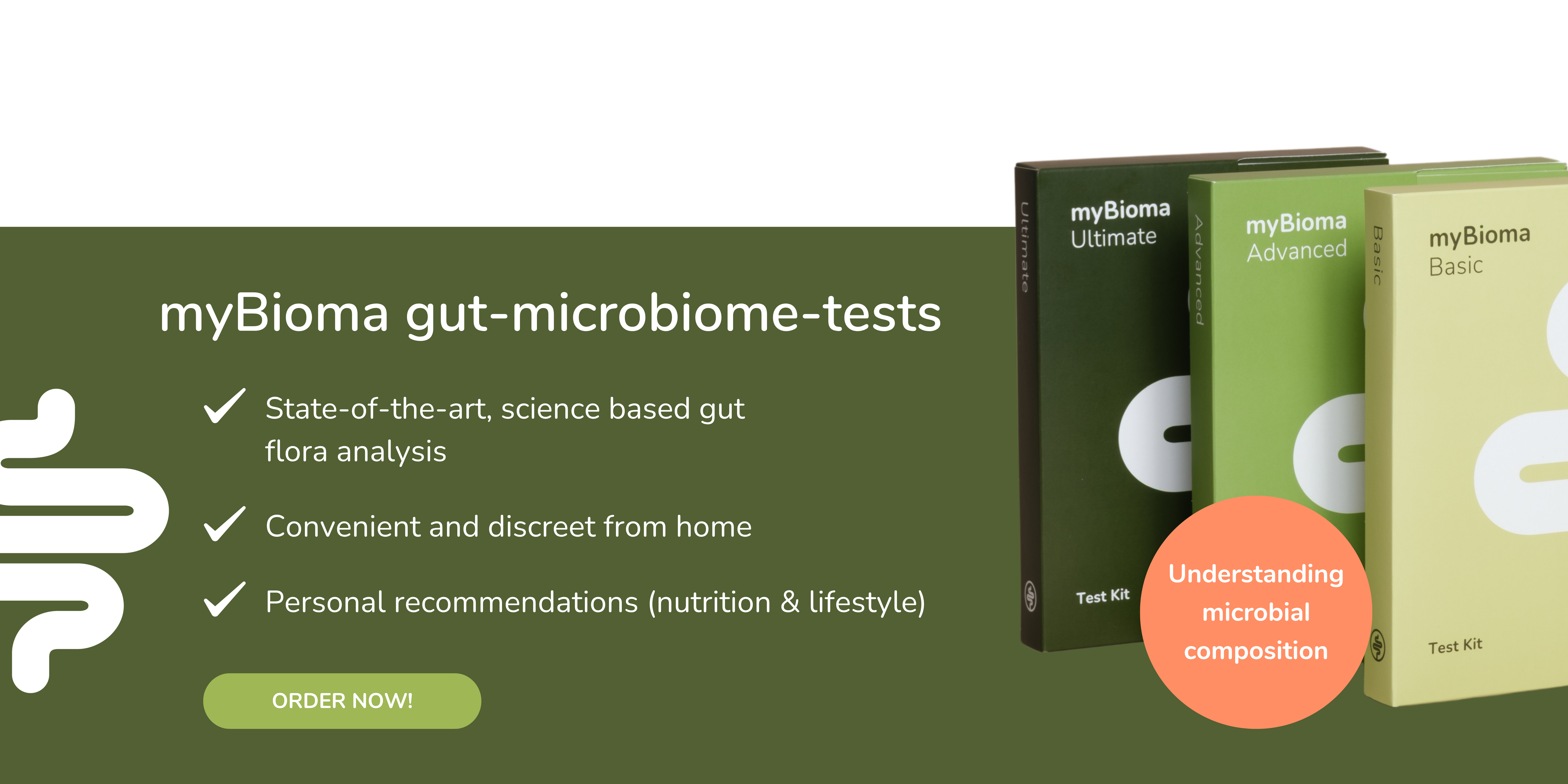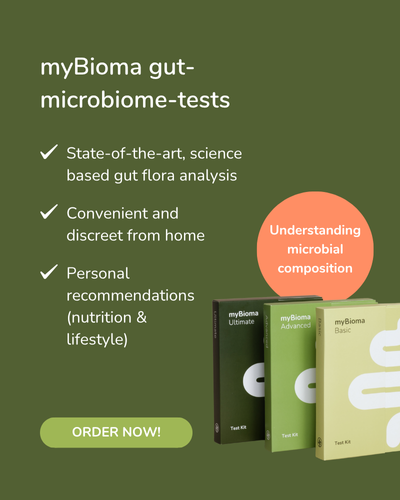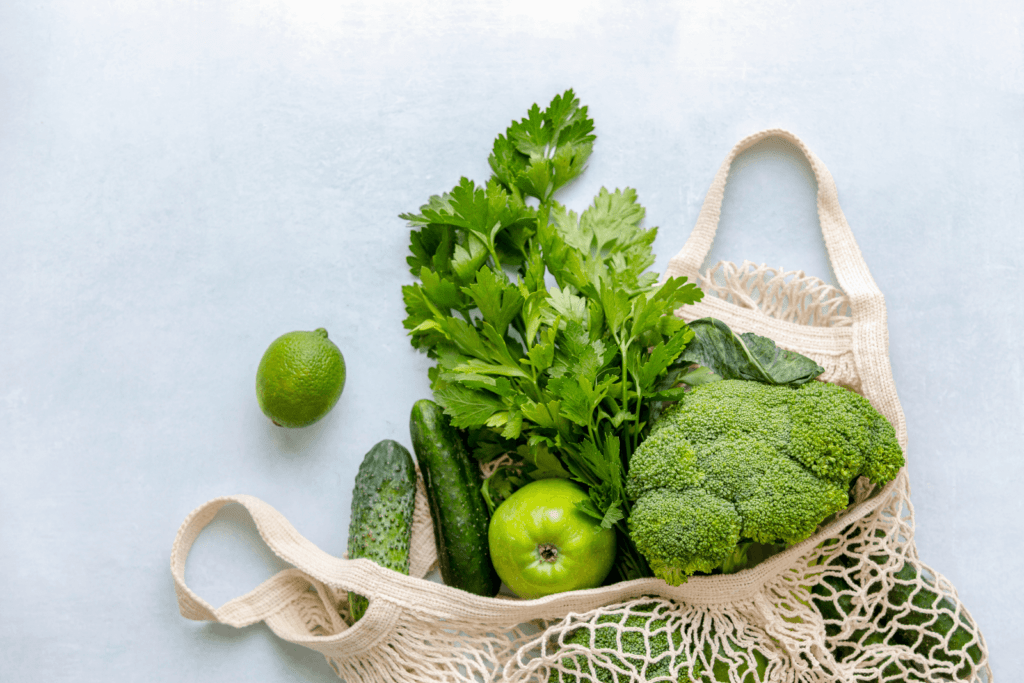Table of contents
- Who are you and what are you doing?
- What are habits anyway and why do we need them?
- Why is it that so many people fail in their projects?
- How do we manage to integrate really healthy eating and lifestyle habits into our everyday lives and stay on track?
- Do you have any experience of how diet can affect your mood?
- Intuitive eating is trending. Does it really make sense to rely on your intuition when it comes to food?
- When should you seek help to change your lifestyle?
We're probably all familiar with it: We make something very specific, for example, like our New Year's resolutions in January to eat healthily, lose weight or exercise. We start our plan motivated for a few days, but then we let up and go back to our old, often unhealthy habits. That's why we asked an expert for advice on why we fail so often and what is really necessary to change our habits sustainably.
Dear Evelyn Obermaier, thank you very much for taking the time to answer a few questions about “changing (eating) habits”. Please start by introducing yourself:
Who are you and what are you doing?
Gladly. Among other things, I work as a clinical and health psychologist in my own practice and accompany many people in individual consultations, but also in groups as part of the Lower Austria “does well” initiative “Precaution Active” on their way to a healthier lifestyle. Nutrition was a very exciting topic for me when I was a student, so I also studied nutritional sciences for a few semesters. Since I had more and more professional contact with dietitians, nutritionists, physiotherapists, sports scientists and of course doctors, I no longer felt it was necessary to specialize equally in both areas of knowledge and preferred to work with these professions.
It is now almost the end of January. Many people have made resolutions, often involving the topic of losing weight and new healthy habits.
What are habits anyway and why do we need them?
Habits are our practical companions in everyday life. They make our lives easier by not having to reinvent ourselves every day. So we might develop a kind of routine so that we can move forward more quickly in the morning and sleep in longer. The usual process is quick and easy, conveys security, stability, trust and we need less energy.
New processes, on the other hand, require more attention, energy and time. Just the morning question “What am I wearing today?” is said to have taken up many a precious minute and possibly even caused a bit of stress. Since the range of possibilities narrows under stress, it usually becomes a combination that has proven itself many times. 😉
The same applies to the question about breakfast. New variants require attention and planning. On a day with high stress potential and low time resources, the patterns of action that have already been tried many times will tend to win.
New Year's resolutions: Most people want to change their diet and do more exercise, but all too often it happens that good resolutions are thrown out the window by mid-January.
Why is it that so many people fail in their projects?
I fear that many people sometimes approach such a project too unprepared. “Getting used to” or “breaking the habit” of something means implementing a new blueprint in our brain. And every new building requires preparation, planning and the provision of resources.
If you want to get into the habit of doing something new, you're basically setting yourself up to learn something new. To put it simply, your brain has to put together a kind of team of brain cells in order to be able to carry out the desired new behavior.
For example, if you want to learn how to start a car with the clutch, a reaction chain is activated in the brain in which one brain cell informs all other brain cells necessary for this action. This means that the entire network responsible for this is activated.
The first time it will probably be a bit slow and bumpy - as we know from everyday team building processes. But little by little, the team members learn to coordinate and react more and more to one another. The connection between each other becomes stronger and stronger.
This can be illustrated visually by comparing the first steps through a cornfield. At first it is difficult to have to make your way through such a field. But if you go this route again the next day, you may recognize your route from the previous day based on clues, such as a few broken stalks. If you walk this path every day from now on, a well-trodden path will be created in this field until the harvest, which you will walk effortlessly without thinking too much.
And this is how habits are formed. Through many, many repetitions something like a “highway in the brain” forms. Leaving this well-trodden path and reorienting yourself requires strength, energy, concentration and is time-consuming. Anyone who has gotten into an automatic car for the first time in years has experienced this. Depending on your experience, it can take a different amount of time until you no longer step into the void with your left foot.
For us at myBioma, health begins in the intestines and the basis for this lies in nutrition and a healthy lifestyle.
How do we manage to integrate really healthy eating and lifestyle habits into our everyday lives and stay on track?
There are certainly a lot of components that need to be taken into account and it also depends very much on the respective personality. But a very important point is certainly to consciously deal with why and why we want to change our habits. We need a really good reason to invest our time, effort and energy into such a life change. A strong driver! An important goal! Preferably a need of the heart that can be satisfied in this way! It simply has to make personal sense to embark on this journey.
Joy - or better yet, enthusiasm - motivation and reward are important companions in maintaining behavior over a longer period of time or even integrating it completely into our everyday lives.
Steps towards this could, for example, be to consciously deal with your own personal values. By this I mean, among other things, consciously questioning your personal purchasing behavior. According to what values and ideas do I make my food selection? Do offers determine my selection? Do I pay attention to regionality? Do I value organic quality? etc. If a value conflicts with my plan, it will not be possible to maintain it for long.
In my opinion, such awareness processes are an essential factor for successful integration into everyday life. Taking time for myself and questioning why I do something and how highly I prioritize it.
How long does it usually take for us to make new habits a routine and become firmly integrated into our everyday lives?
After 3 months, a good basis is usually created for integrating a new behavior into everyday life or, in other words, an easy-to-walk path through the cornfield has been paved. It is important not to make too many changes at once. Only when a new habit has been well established or a path has been well established is it advisable to take the next step.
It is not only important to incorporate new healthy habits, but also to get rid of old unhealthy habits. Do you have a tip?
This is certainly an important point, but sometimes requires a little patience and creativity in implementation. Especially if it is an unhealthy but deeply cherished habit that may satisfy many emotional needs.
Because it is important to find something equally fulfilling and at the same time healthy as a replacement. Eliminating something with a reward function without replacing it will rarely be successful in the long term.
We all probably know it: When we are stressed, we often reach for unhealthy foods, such as chocolate or ice cream. What do we want to achieve with this?
Food is strongly connected to our reward centers in the brain. In addition, sweets in particular are still often used as rewards. A good report card is rewarded with a trip to the nearby ice cream shop, we traditionally celebrate the day of birth with cake, after a busy day we deserve... (whatever we personally believe), when we are sad we console ourselves with e.g Chocolate…etc
Food is much more than just a physiological filler. It is important to be aware that food also fulfills many psychological functions.
For example, as an emotional stabilizer and comforter in crises, a real supporter to contain anger, a silent representative of praise and recognition “Well done! Now you have earned a reward for your efforts!”, as an “occupation” when one is filled with inner emptiness, it offers the possibility of social gatherings (family dinners), partnerships (business lunches), friendships (coffee and cake) and other social gatherings to provide an appropriate framework and much more
We should be aware that many of our eating habits are learned.
On the other hand, research indicates that our taste receptors are not only stimulated by delicious food, but also react to so-called endogenous messenger substances, including stress hormones. According to observations, stress seems to increase our desire for sweets in particular.
According to the “selfish brain theory,” our brain is selfishly concerned with maintaining its energy supply. In the event of greater stress (whether physical or psychological), it activates the body's own stress system to demand energy from the body - including in the form of glucose.
From this perspective, avoiding stress and practicing relaxation techniques are useful companions on the path to a healthy, low-sugar diet.
On the other hand, it is also scientifically proven that the foods we eat influence our mood. This is because we have certain bacteria in our intestines that are able to break down fiber and produce short-chain fatty acids (SCFAs) such as butyrate and propionate, which in turn stimulate our intestinal cells to produce serotonin. Serotonin, also known as our happy hormone, is considered a natural mood stabilizer - and helps us feel happier, calmer, less stressed and anxious. Almost 90% of serotonin is produced in our intestines.
Do you have any experience of how diet can affect your mood?
Yes, experts often use the term “mood food” in this context. This refers to foods that promote the release of our body's own happiness hormones and can therefore help to improve our mood. In general, these include dark chocolate, vanilla, fish, berries, chestnuts, etc. I then like to refer colleagues from the field of nutritional sciences with whom I work.
And then of course there is our individual reaction or even hypersensitivity to certain foods and our personal biorhythms and how we deal with our daily lows and highs.
Personally, I have noticed, for example, that I tend to become tired, unfocused and a bit listless in the afternoon. Unconsciously, I used to work against it with coffee or chocolate. So, strictly speaking, these foods are misused ;-). Today I know that if I treat myself to a power snack of no more than 30 minutes - and it really never takes longer - I achieve a much better effect. I try to take this into account when planning my day whenever possible.
Another observation is that there is a certain cereal flake mixture that our kids especially like to eat at home, which I personally don't like at all. I feel like it, I can't think of a better description at the moment, as if I were “stinging”. Afterwards I feel completely out of place, unfocused and irritable. It's simply impossible to think about working efficiently afterwards. After making this observation more than once, I simply no longer eat this mixture.
I also try to avoid heavy, fatty foods because experience shows that they make me sluggish, lazy and listless. I fall into the couch and even really cool, exciting projects can't get me out of this state. I think that's a shame and my life time is now too precious for me.
Everything in our brain is so brilliantly interconnected and smells and tastes in particular can quickly bring all archived feelings (for better or for worse) to life. For example, when my grandmother-in-law makes a vegetable soup, it tastes very similar to that of my (unfortunately deceased) grandmother. I think of her immediately and remember sitting in her kitchen as a child and eating the warm soup in her presence.
Intuitive eating is trending. Does it really make sense to rely on your intuition when it comes to food?
Personally, I am a big proponent of mindful and conscious eating. The transition from a more cerebral approach to feeling things for yourself is certainly not an easy one, but I find this path to be very worthwhile - especially in the long term. For example, I would perhaps still use the muesli flake mix that is unsuitable for me today.
In my opinion, nutrition plans are not generally bad or cannot be integrated into an intuitive eating style. It depends on how detailed and comprehensive they are. There is scope for creativity – depending on your personality. And depending on the nature of the surrounding infrastructure, a certain amount of purchasing planning may not be completely avoidable anyway.
In my experience, there are people who tend to have a hard time with “plans.” I also consider myself to be one of those people who tend to spontaneously redesign a plan based on a “brainstorm”. But there are also people who feel more comfortable in everyday life if they can work through a kind of to-do list.
When I was able to start working with my groups again after the first lockdown and we exchanged information about the time and how we were doing during it, one participant surprised us with her realization that she hadn't been able to do it for a long time when it came to shopping, cooking and eating as good as it was in lockdown. Her children moved to the country with her for the duration of the lockdown. A daughter took over the menu planning and drew up the corresponding shopping list. All she had to do was take the list, do the shopping and cook the menu accordingly.
Of course, the “what” cannot be determined by gut feeling, but the “how much” and “of what” can and also the “when”.
In a world in which time is becoming the most valuable resource, creative approaches often emerge to simplify everyday life. Meal planning seems to be an important point.
A client told me that her family had a 10-day plan that was constantly repeated. If this ensures a balanced diet even in challenging times and the family can avoid additional stress in this way - why not. Especially since numerous studies now point to the negative effects of stress on, among other things, body weight and intestinal health.
Personally, however, I would miss the variety and the enjoyment would definitely be neglected. But we humans are certainly very, very different. 😉
When should you seek help to change your lifestyle?
People usually seek help when their personal suffering has exceeded a certain level. Unfortunately, the unfavorable lifestyle has often left its mark. Earlier would therefore be better - but then there is often no recognition of a sense for a change in behavior. Everything is still good. This reminds me of an article I read today. A pilot who currently has to earn money elsewhere due to Corona. He would love to fly again and remembers - almost ashamed - times when he complained about his flight times. The current times in particular invite you to rethink and become aware of what really matters in life.

Psychologist Evelyn Obermaier.
We would like to thank Evelyn Obermaier for her valuable input. If you would like to find out more about her and her work, the best thing to do is visit her homepage where you can find all other contact options and information. Such an exciting and important topic! We hope you enjoyed the article and that you were able to pick up a tip or two!







